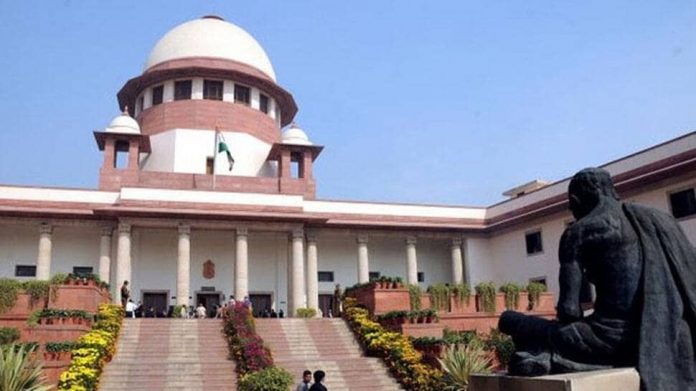New Delhi: The Supreme Court has passed a slew of directions to the chief justices of every high court in order to ensure expeditious disposal of pending criminal cases against the sitting/former Legislators (MPs and MLAs). The directives included advice to the chief justices to personally oversee such cases.
A three-judge bench of Justices N.V. Ramana, Surya Kant and Hrishikesh Roy opined that the present case is of paramount importance, because special consideration was not only required due to rise of criminalisation in politics but also due to the power that elected representatives (sitting or former) wield, to influence or hamper effective prosecution.
“Additionally, as legislators are the repositories of the faith and trust of their electorate, there is a necessity to be aware of the antecedents of the person that is/was elected. Ensuring the purity of democratically elected institutions is thus the hallmark of the present proceedings,” said the court.
The court passed its order on the petition filed by BJP spokesperson and advocate Ashwini Kumar Upadhyay, seeking speedy disposal of criminal cases against the elected representatives of Parliament and the legislature. The court had appointed Senior Advocate Vijay Hansaria as the Amicus Curiae in the matter. The Amicus has filed the supplementary report on the basis of information furnished by ten of high courts.
“The supplementary report indicates that there are about 175 cases under the Prevention of Corruption Act, 1988 and 14 cases pending under the Prevention of Money Laundering Act, 2002 against sitting/former legislatures (MPs & MLAs). These are in addition to the 4,442 criminal cases indicated to be pending as per the earlier report submitted by the Amicus Curiae,” noted the court in its order.
The Amicus Curiae has also pointed out the various reasons behind this backlog of pending criminal cases against the sitting/former legislators (MPs & MLAs). He said proceedings in a number of cases have been stayed by various high courts. Secondly, many of the states do not have the requisite infrastructure to deal with these cases. The states do not have Special Courts. In States such as Madhya Pradesh, Bihar, Tamil Nadu, Karnataka, Telangana & Maharashtra only one Special court has constituted.
On this Solicitor General Tushar Mehta, assured the Court that all pending cases which have been stayed by the High Courts, must be concluded within a time bound manner, preferably within one month. He said the state governments should provide the necessary infrastructure within one month, as Central Government has already granted funds.
He said, Central Agencies, like the CBI & the Enforcement Directorate, will pursue matters effectively and they shall ensure that any pending investigation/trial will reach its logical conclusion.
He submitted that he would file a status report with respect to the initiation, current stage of investigation pending against sitting/former legislators (MPs and MLAs) before the CBI, Enforcement Directorate and other central agencies, pendency/grant of sanctions for prosecution, the expected time for completion of the investigation and reasons for delay in the same, if any, before the next date of hearing. He further submitted that appropriate action would be taken by the nodal departments against any officer responsible for any unreasonable delay.
The Supreme Court has directed the Chief Justices of all High Courts to:
1) formulate action plan on rationalization of number of special courts.
2) personally monitor trials.
3) offer suggestions to Amicus for speedy disposal.
4) submit action plan with comments and suggestions to Amicus and Secretary General of Supreme Court within a week.
5) to list cases where stay has been granted and to designate separate bench to hear them. To check whether stay needs to be continued and hear them on day-to-day basis to dispose them quickly.
Read Also: Increasing minimum age of marriage for women from 18 to 21 may not help poor, marginalised women
Covid-19 should not be an impediment to implement above directions, said the Court.
The Court has adjourned the hearing for 2 weeks.
– India Legal Bureau


